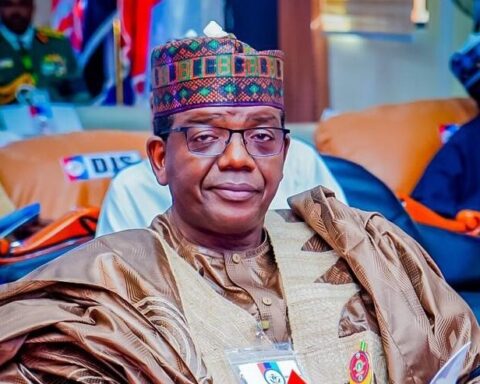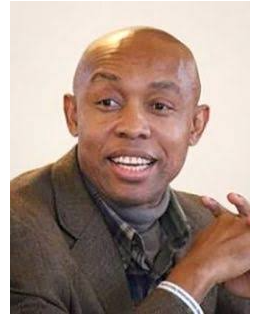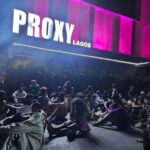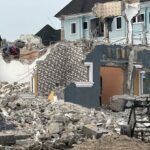By Rev. Fr. ChukwuEmekalum Nwosuh, PhD
I . Omoyele Sowore has done something remarkable. While most Nigerians complain endlessly about corruption on social media and in beer parlours, Sowore took a different path.
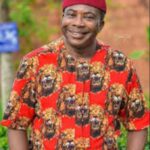
He petitioned the Attorney General of Florida, requesting that Nyesom Wike be investigated and prosecuted for money laundering disguised as real estate investment. Armed with documentary evidence, Sowore showed how Wike and his wife allegedly exploited legal loopholes to transfer three American properties to their three children.
This singular act has given us what I call the “Sowore Template” – a powerful weapon that Nigerians and, indeed, Africans can use to hold our corrupt leaders accountable. But as many of us celebrate and wait for justice to crush Wike’s bloated ego, we may be missing the revolutionary potential of Sowore’s action.
II. The Curse of Powerlessness
For decades, we have watched helplessly as our rulers loot our national wealth with utter impunity, stashing billions in foreign countries while millions of Nigerians wallow in poverty. While ordinary Nigerians struggle to survive under impossible conditions, the wives and children of our political leaders live lavishly in London, Dubai, and New York, enjoying the very infrastructure their fathers refuse to build in Nigeria.
The worst damage this system inflicts on us is not just poverty – it is the crushing sense of powerlessness. When people feel powerless, they stop trying to change their situation. They resign themselves to prayers, complaints, and empty social media rants. Our political leaders understand this psychology perfectly. They use arrests, intimidation, and the weaponization of poverty to keep us feeling helpless and defeated.
This learned helplessness explains why many Nigerians have given up on the possibility of real change. Even those who dream of revolution – peaceful or otherwise – secretly doubt it will ever happen. We have become prisoners of our own despair.
III. The International Solution
But Sowore’s petition against Wike proves we are not as powerless as we think. By leveraging American anti-money laundering laws, he has shown us a new battlefield where we can fight corruption – one our leaders never saw coming.
Think about it: Nigerian politicians steal our money and use it to buy properties abroad, send their children to foreign schools, and build parallel lives outside Nigeria. What if we could strip them of these privileges? What if their stolen wealth became worthless because they couldn’t enjoy it anywhere in the world?
This is exactly what the Sowore Template offers. Through strategic legal advocacy in Europe and America, we can turn our rulers’ foreign investments into liabilities rather than assets.
IV. How the Template Works
The beauty of Sowore’s approach lies in its simplicity and replicability. Here’s how other Nigerians can adopt this template:
Step 1: Establish Financial Baseline: Document the declared financial worth of political and public office holders before, during, and after their tenure. This involves collecting asset declarations filed with the Code of Conduct Bureau, analyzing their known sources of legitimate income, and tracking any significant increases in wealth during public service. This baseline becomes the foundation for identifying unexplained wealth that forms the basis of any corruption petition.
Step 2: Document Foreign Assets: Identify politicians with suspicious foreign assets that cannot be justified by their declared income. Thanks to social media and investigative journalism, this information is often hiding in plain sight. Politicians’ children posting from expensive foreign schools, luxury properties appearing in family names, unexplained wealth – all these leave digital footprints that can be systematically catalogued and verified.
Step 3: Legal Research: Every Western country has anti-money laundering laws, asset forfeiture statutes, and corruption-related legislation. These laws often apply to foreign nationals who bring illicit funds into their jurisdictions.
Step 4: Strategic Petitioning: File formal complaints with relevant authorities, backed by irrefutable evidence of the disconnect between declared wealth and actual assets. Unlike Nigeria’s compromised system, Western judicial systems maintain relative independence and must respond to credible allegations.
Step 5: Sustained Advocacy: One petition is just the beginning. Sustained pressure through legal channels, media coverage, and civil society engagement can force action even when initial responses are slow.
V. Expanding the Template
We must think bigger than individual cases. Imagine if organized groups of Nigerians began systematically targeting the foreign assets of corrupt officials. We could advocate for new laws that:
1. Prohibit suspected corrupt officials and their families from owning assets, including bank accounts, in Western countries
2. Ban the children, grandchildren, and spouses of corrupt politicians from obtaining permanent residency or citizenship abroad so they cannot enjoy abroad what their politician parents/spouses deny citizens at home
3. Ban suspected corrupt officials from visiting or residing in Western countries even after they leave office
4. Require foreign universities and institutions to scrutinize funding sources from Nigerian public officials
5. Create public databases of asset forfeitures related to African corruption cases
The principle is simple: if you loot Nigeria’s resources, you shouldn’t be able to enjoy the proceeds anywhere in the world. If your corruption denies Nigerian children quality education and healthcare, your own children and spouses shouldn’t access these benefits abroad using stolen funds.
VI. The Role of the Nigerian Diaspora
Nigerians living abroad are crucial to this strategy’s success. Living in these countries, they understand local laws, political systems, and advocacy networks better than those of us at home. They can:
1. Partner with local civil rights organizations and anti-corruption groups
2. Lobby for new laws – similar to the U.S. Magnitsky Act or the UK’s Unexplained Wealth Orders – that target corrupt African officials and their families.
3. Provide on-ground intelligence about suspicious Nigerian assets
4. Coordinate media campaigns that embarrass corrupt officials in their host countries
Imagine if Nigerian-Americans in every state began pressuring their senators to support stricter enforcement of anti-money laundering laws against African officials. The cumulative impact would be enormous.
VII. Building a Continental Coalition
While the Sowore Template begins with Nigeria, its true power lies in continental expansion through a coordinated pan-African advocacy network. Political corruption is not uniquely Nigerian – it plagues Ghana, Kenya, South Africa, Zimbabwe, and virtually every African country. From Equatorial Guinea’s Teodorin Obiang to Angola’s Isabel dos Santos, corrupt African leaders have turned Western capitals into personal treasuries while their citizens suffer in poverty.
A coordinated pan-African approach would be exponentially more effective than isolated national efforts. Imagine advocacy groups from Lagos working with counterparts in Nairobi, Accra, and Johannesburg to simultaneously target corrupt officials’ international assets. This continental coalition could pool resources, share intelligence, and present a united front to Western governments and institutions. When Kenyan activists expose their president’s London properties while Nigerian groups target ministerial assets in Dubai, and South African advocates pursue corrupt officials’ Swiss bank accounts, the cumulative pressure becomes impossible to ignore. Such coordination would also prevent corrupt officials from simply moving their assets from one Western jurisdiction to another when heat intensifies. A truly continental anti-corruption network, possibly extending to other developing regions facing similar challenges, would transform the Sowore Template from a national tool into a global movement that fundamentally alters the international architecture enabling kleptocracy.
VIII. Why This Can Work
Western countries benefit from African corruption – stolen funds boost their real estate markets, banks, and educational institutions. However, the same democratic systems that enable this complicity also provide avenues for change. Independent judiciaries, free press, and active civil societies in these countries can be leveraged to fight corruption.
Moreover, international anti-corruption efforts are gaining momentum. The success of Magnitsky Act-style legislation shows that targeted sanctions and asset freezes can be effective tools against corrupt officials worldwide.
IX. The Path Forward
The Sowore Template won’t end corruption overnight – that’s not the goal. The goal is to put a leash on corruption so that corruption no longer holds Nigerians and Africans in its grip. We can achieve this by removing the international safe havens that make corruption in Africa profitable. When corrupt officials can no longer stash their loot abroad or secure their families’ futures outside Nigeria, the cost-benefit analysis of corruption changes dramatically.
This approach offers several advantages over traditional anti-corruption efforts:
1. It bypasses Nigeria’s compromised institutions
2. It leverages stronger legal systems abroad
3. It creates immediate consequences for corrupt behavior
4. It can be implemented by ordinary citizens without waiting for government action
X. A Call to Strategic Action
Sowore has shown us the way, but individual efforts alone won’t maximize this template’s potential. What we need is not a mass movement of internet warriors, but a small, powerful, and strategically assembled anti-corruption advocacy group that can drive this idea with professional precision.
This core group should draw from specific professions essential to the template’s success: lawyers with expertise in international law and asset forfeiture; investigative journalists skilled in financial forensics and cross-border research; forensic accountants who can trace money trails across jurisdictions; technology experts who can analyze digital footprints and social media evidence; diaspora professionals with deep knowledge of Western legal and political systems; and retired civil servants who understand how corruption networks operate from the inside.
The power of this approach lies not in numbers but in strategic capability. A focused group of 20-30 professionals can accomplish what thousands of social media activists cannot: systematic research, professional-grade documentation, strategic legal filings, and sustained advocacy campaigns that Western institutions must take seriously. This group would operate like a specialized law firm or consulting company, with clear divisions of labor and professional standards.
This advocacy group would establish standardized procedures for investigating suspicious assets, create templates for legal filings in different jurisdictions, build relationships with international anti-corruption organizations, and develop a pipeline of cases that can be pursued systematically rather than sporadically. They would also train members of the continental coalition mentioned earlier, ensuring that expertise spreads across Africa while maintaining professional standards.
The choice before us is clear: we can continue with scattered individual efforts that achieve limited impact, or we can professionalize our approach and build an institution capable of sustained warfare against corruption. Sowore fired the first shot – now we need an army of professionals to win the war.
Nigeria deserves better, and with the right professionals applying the Sowore Template systematically, we can demand it effectively.
Rev. Fr. Dr. ChukwuEmekalum Nwosuh, OP, a certified accountant is the President of the Dominican Institute, Ibadan
September 2025.
Follow us on all social media platforms @dailyquery for news and analyses around the globe.


